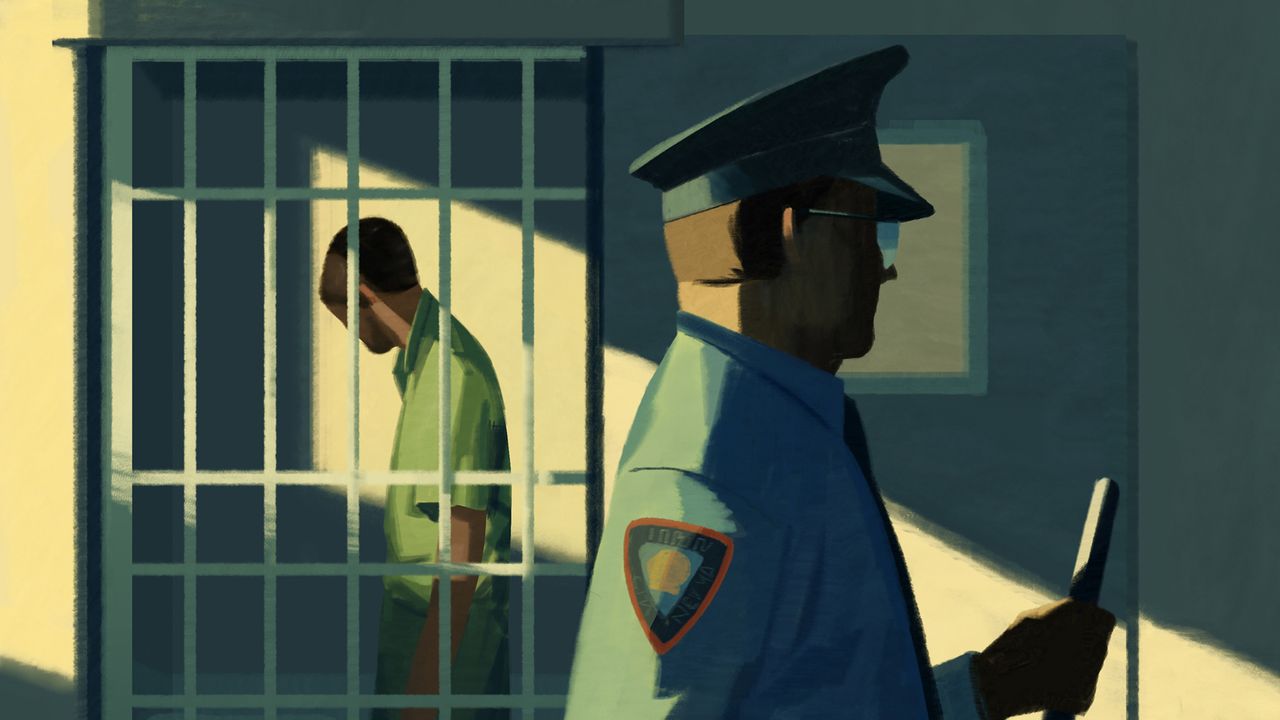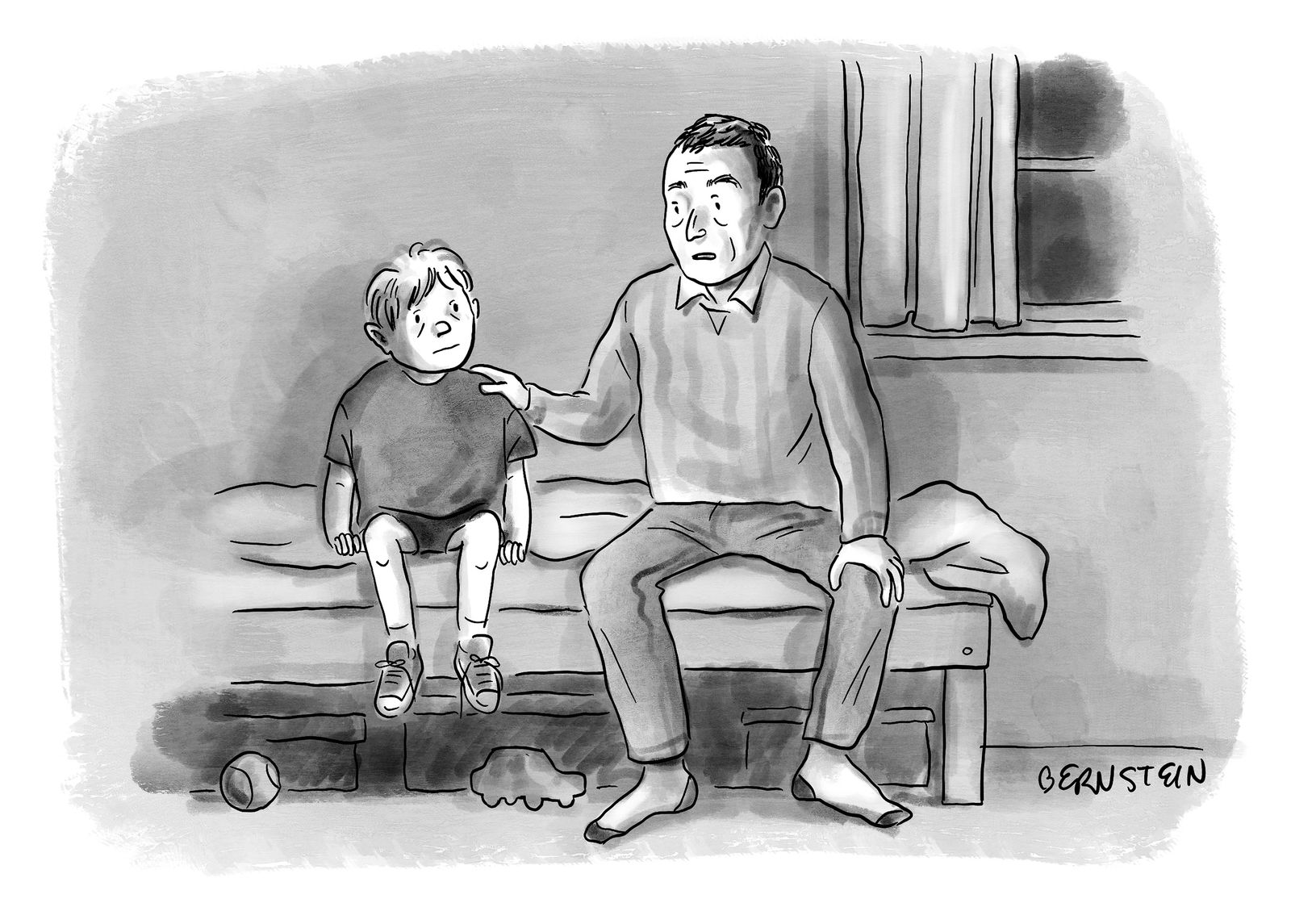But Locke brought up another practice that he thought should be ended: double-celling, which had persisted at Upstate even as New York’s prison population shrank. Eliminating double-celling would “alleviate inmate-on-inmate assault, because there’s no one in there for them to fight,” he explained. (In August, after we spoke, there was another homicide at Upstate, with one man strangling his bunkmate in their cell.)
Sometimes when a bus of new arrivals to Upstate learned that they would have to double-bunk, a man would refuse to enter his new cell. Ashley said, “We were always, like, ‘Nah, put them in a cell. They don’t want to? We’re putting their ass in there.’ ”
But, recently, Ashley has seen the situation differently. When speaking about the months since he lost his job, he repeatedly used the phrase “becoming human.” “The more I become human again,” he said, the more he could see this predicament from the incarcerated man’s point of view. “I don’t want to do that”—live in a cell with another man. “Why would they want to do it?”
The day the footage of Robert Brooks’s murder was released, the officers inside Upstate were on edge, wondering how much the Marcy officers were at fault. “And then we had that video—it speaks for itself,” Ashley said.
“There’s nothing that you can say where it’s a reasonable explanation,” Locke added.
“You can just see—there’s a lot of evil,” Ashley said.
After the footage came out, some of their co-workers stopped wearing their uniforms on their commute and instead changed once they got to the prison. Ashley said that some officers stopped “having any pride for being in law enforcement.”
“It has never been a job where we walked around and got a lot of appreciation and respect from the public, and that video set us back twenty years,” Locke said.
The two men spoke about how losing their jobs had brought them a sense of relief. “You start to notice that your blood pressure is better. You’re sleeping through the night. You’re more rested when you do wake up,” Locke said. “You’re repairing relationships with your kids.”
“Someday, if you make enough money, you’ll get much better advice from a therapist.“
Cartoon by Emily Bernstein
Job hunting, however, was not easy. Several hundred officers in the area were unemployed, and they were competing for whatever work was available. “People do make assumptions, even people in a prison town that are pro-officers,” Locke said. “They’re still going to ask that question.” What question? “How do you think that you can deal with an irate customer? We don’t want to see you guys beating somebody.”
Across New York, more than eight hundred officers and sergeants who were terminated have been rehired by DOCCS. After listening to the two men’s critiques of Upstate prison for hours, I was surprised to hear them say that they, too, wanted to go back inside. “I saw things that were wrong, obviously, and those things are important to me, but I actually liked the job,” Locke said. “If I was offered to come back, it would be very difficult for me to turn that down.” But, he added, “I don’t think that offer is coming.”
On May 14th, the same day I sat down with Ashley and Locke, state legislators held a hearing in Albany about New York’s prisons. Among those who testified was Robert Ricks, the father of Robert Brooks. Ricks runs a youth program in Rochester, and, like so many other Americans who have lost a loved one at the hands of law enforcement, he had been visiting his state’s capitol to speak with politicians. “I hate coming here,” he told legislators that afternoon. “From the moment I set foot in this building, I want to cry. And I don’t want to cry because my son is dead. I want to cry because there’s an eerie, omnipresent feeling in the African American community that’s unspoken, often unspoken, that nothing is going to change.”
Ricks and others were testifying in support of the Robert Brooks Blueprint for Justice & Reform—an ambitious package of twenty-three bills that was intended to improve New York’s prisons, including one that would give the commissioner of DOCCS more authority to get rid of abusive officers. “If we can send rockets to the moon, if we can create bombs that blow up whole countries—we can’t stop people from beating people to death?” Ricks asked.


